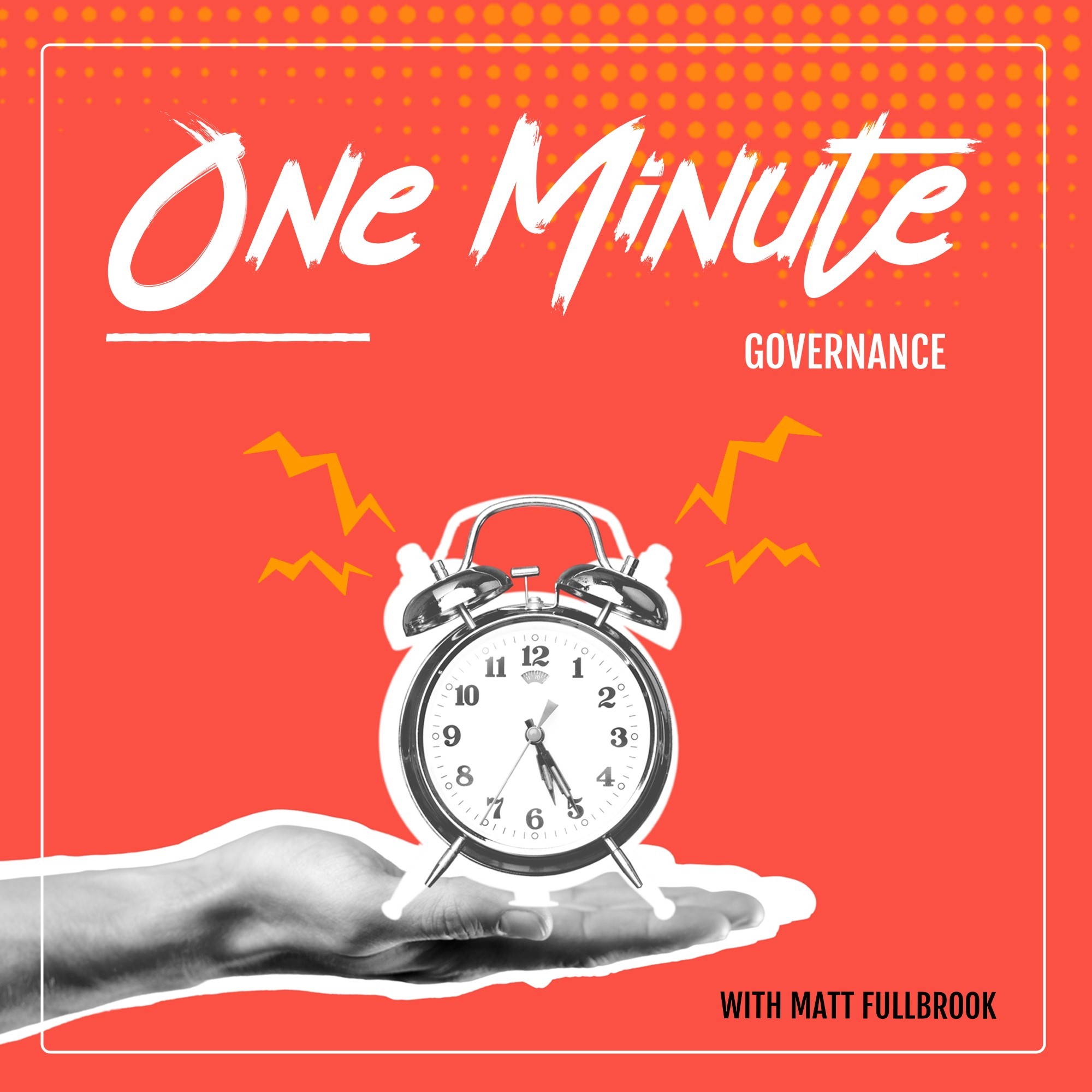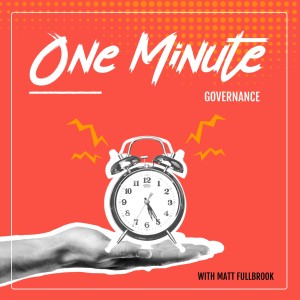
135.5K
Downloads
270
Episodes
Season 5 is live! New episodes every Monday and Thursday. This season, we’re exploring questions that directors need to *answer*. Are you a director, senior executive, investor, or someone who’s just curious about corporate governance? Tune in for insights about how things work inside and outside the boardroom, based on 20 years of experience and interactions with thousands of directors from around the world. Each episode lasts about one minute and will provide you with questions to ask yourself, your board and your management team, designed to optimize the way your organization makes decisions. Matt Fullbrook is a corporate governance researcher, educator and advisor located in Toronto.
Episodes

Thursday Jun 30, 2022
103. What is BAD Corporate Governance?
Thursday Jun 30, 2022
Thursday Jun 30, 2022
If I'm going to give you a definition of GOOD governance, I guess we'll need one for BAD governance, too.
Background music is Of the Stars by KC Roberts & the Live Revolution
SCRIPT
In the previous episode, I suggested that we define good corporate governance as creating conditions that maximize the likelihood that effective decisions will get made. I’ve had months to sit with it, and you’ve only had a few days but it still gives us a useful starting point for a bunch of conversations. Including thinking about what BAD corporate governance might mean. The most high-profile conversations about bad governance – or good governance, for that matter – are usually triggered by big, sexy crises or blowups. Especially if there’s a criminal or systemic element to the story. Theranos, Volkswagen, Enron, the Financial Crisis…they all prompted interesting conversations about corporate governance and in some cases played a role in kicking off major policy changes affecting disclosure requirements, board composition, and more. But does bad disclosure mean you have bad governance? Does less-than-perfect board composition mean you have bad governance? What, really, do the Volkswagen, Theranos, and Enron cases have in common that they don’t ALSO have in common with lots of other organizations that have never had a crisis, and never will? Maybe I’m overstepping here, but could the definition of BAD governance just be the absence of good governance? In other words, the definition of bad corporate governance is NOT creating conditions that maximize the likelihood that effective decisions will get made. It’s a bit of a scary thought, isn’t it? What even ARE the conditions that make effective decisions happen? Before we get into it any further, let’s take a break for a few days and sleep on it.

Comments (0)
To leave or reply to comments, please download free Podbean or
No Comments
To leave or reply to comments,
please download free Podbean App.